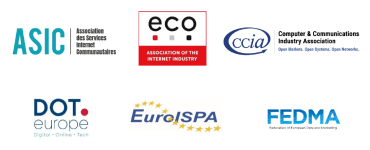“Blocking of Internet content is like a zombie,” is the analogy Oliver Süme, eco Director Policy & Law, uses. “The idea has been buried again and again, for good reasons.” From eco’s point of view, blocking Internet content is not a suitable tool in combatting illegal online content. Quite the opposite; “The creation of infrastructure to block and filter Internet content is contra productive in combatting illegal content and for deleting such content,” Süme expounded. Internet blocks are easy to get around, and then the content is still there and can still be accessed. He believes it makes more sense to promote more cooperation among law enforcement authorities on European and international levels and to work towards deleting criminal content.

“Especially because this is about investigating very serious offences, actionism is not the right response. Focused criminal proceedings are better served with the principle of effective and sustainable deletion of illegal content. The EU must consider what is practically, technically and legally reasonable. The German government already learnt this lesson a few years ago,” Süme continued.
The draft was a reaction to the attacks in Paris in November 2015 and is meant to make the prosecution of terrorists easier. The European Parliament’s Committee on Civil Liberties, Justice and Home Affairs (LIBE) gave the draft a green light in July 2016 and now the directive will be negotiated in a trialogue between the Parliament, Commission and European Council. The European Parliament wants to allow Member States to block websites under certain conditions, under the Counter-Terrorism Directive.
The Directive allows governments to take measures to quickly remove illegal content which publically calls for terrorist acts, or – when that is not possible – to block access to such content.




